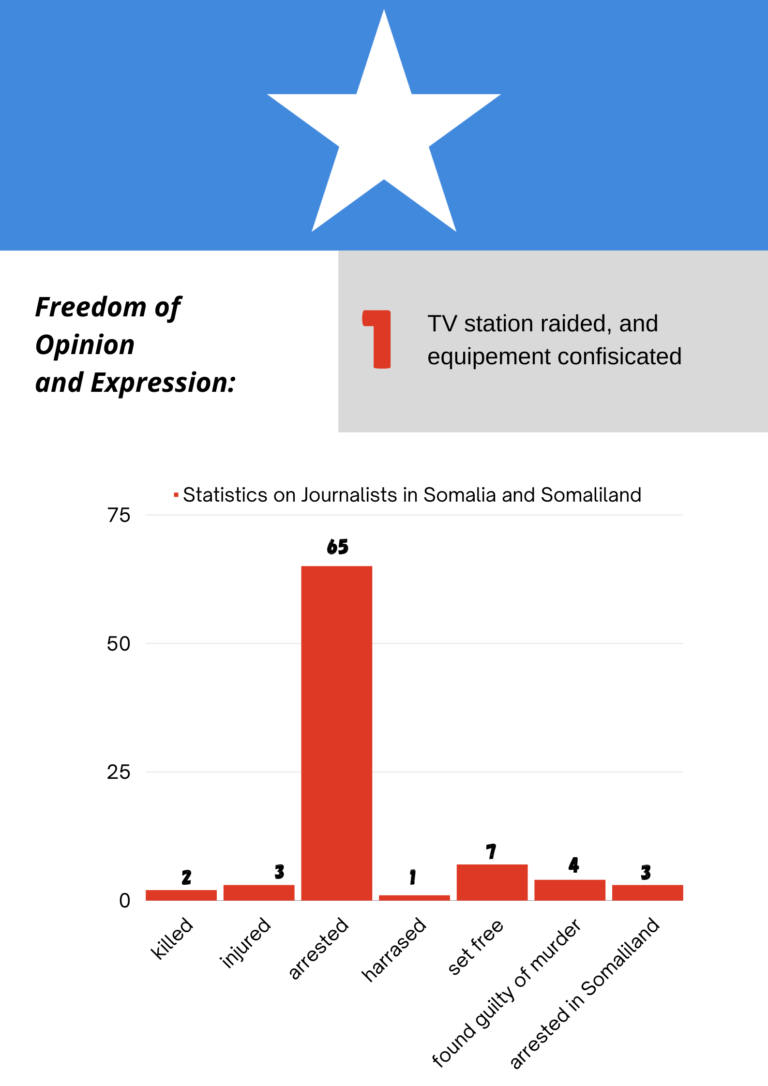
Somalia and Somaliland
Somalia continues to face insecurity, conflict, and recurring drought due to climate change. The presidential election originally scheduled to take place in late 2020 is postponed until an agreement is reached. The lower house elections, initially scheduled for November to December 2021, have been postponed, and the deadline continues to be further extended.The swearing in ceremony for the newly elected lower and upper houses MPs is scheduled for 14 April 2022, however, some MPs from Jubaland and Hirshabelle have not yet been elected.
In Somaliland, authorities increased the censorship of journalists and the media.
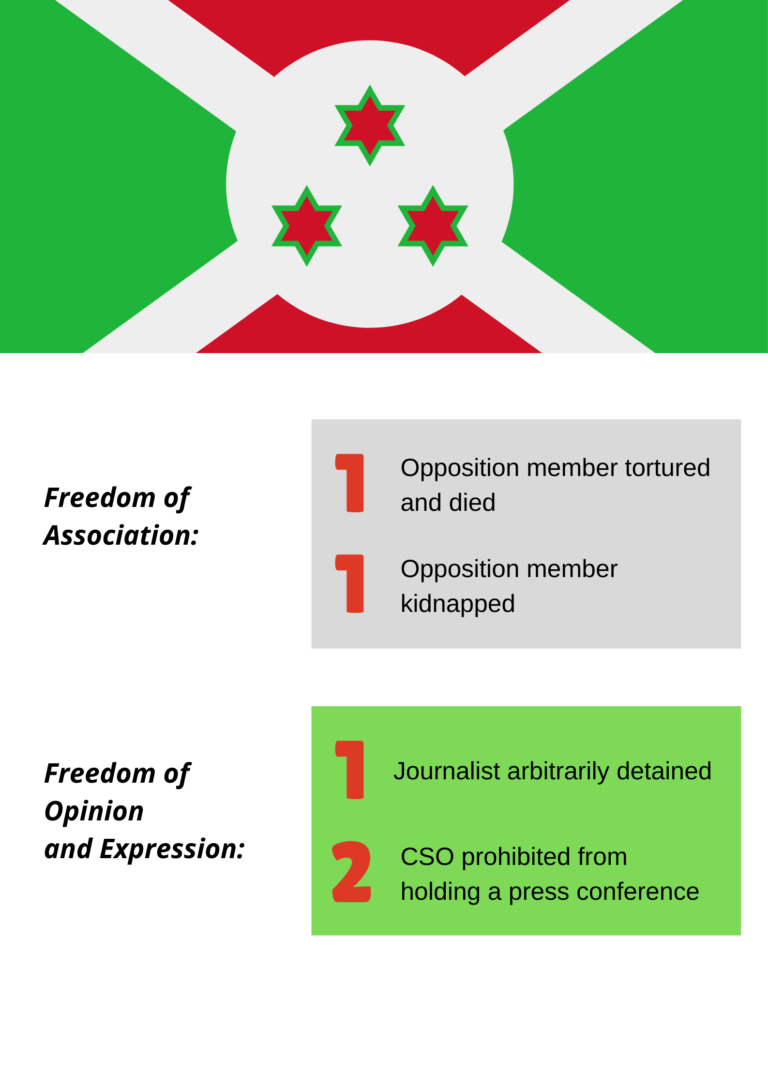
Burundi
Burundi’s civic and democratic space remains severely restricted. While President Evariste Ndayishimiye made a few attempts to release pressure over civil society and Burundian citizens in general, including by releasing prisoners in January 2022, some HRDs arrested in the aftermath of the 2015 political crisis remain in jail. The government continues to exert its control and curtail the rights to freedoms of expression, peaceful assembly, and association. Reports of extrajudicial killings, arbitrary arrest, torture, and enforced disappearances of opposition members and government persist. Impunity remains widespread, including for violations and abuses related to the 2015 political crisis.
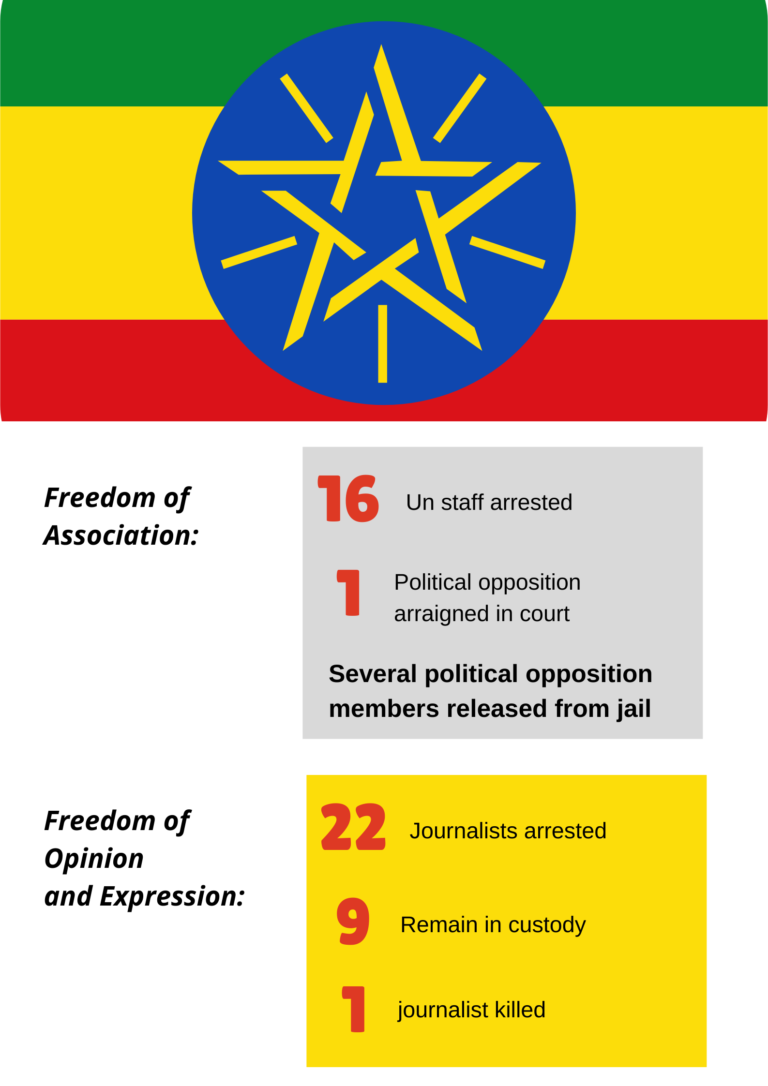
Ethiopia
The Ethiopian conflict has wreaked havoc on millions of people in Tigray and the neighbouring regions of Afar and Amhara, as well as in Benishangul Gumuz and Oromia, which continue to experience intercommunal conflict and localised violence. Gross and systematic violations and abuses, including attacks against civilians, sexual violence, arbitrary arrests, and ethnic cleansing, continue to occur. Ethiopian citizens’ enjoyment of their freedom of expression has further declined during the reporting period. Ethiopian authorities declared a nationwide state of emergency on 4 November 2021, giving the government broad powers that increase the risk of arbitrary arrest and detention of at-risk communities.
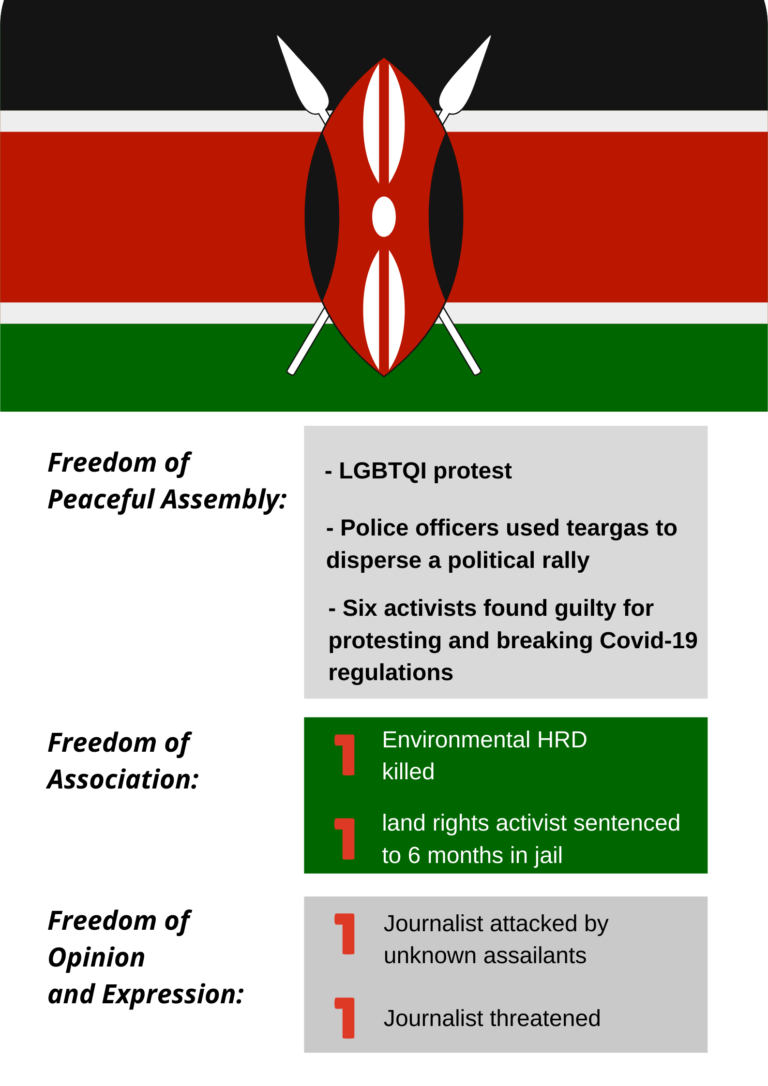
Kenya
Kenya is set to hold general elections in August 2022. The pre-election period is characterised by grave violations, including extrajudicial killings, enforced disappearances, and torture often committed by security forces. Gender-based violence, primarily against women and girls, continues, and the Lesbian, gay, bisexual, transgender, queer and intersex (LGBTQI) community continues to be targeted. To date, Kenyan authorities have used the Covid-19 pandemic as an excuse to restrict freedom of peaceful assembly. In the reporting period, the Magistrate Court in Mombasa found six activists guilty of illegally gathering and failing to maintain physical distances in a public place.
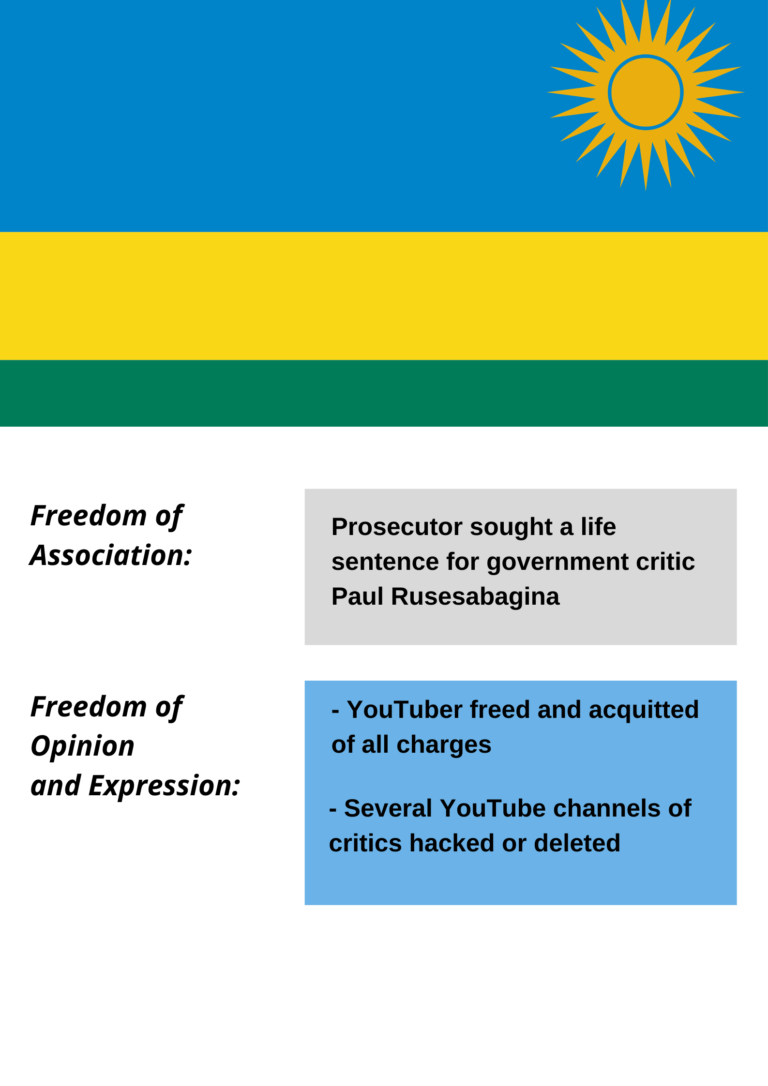
Rwanda
Rwanda continues to stifle its civic space and target those it perceives as critics. Arbitrary arrests, torture, threats, and unfair trials remain commonplace for political opponents, critics, journalists, and bloggers. Several critics continued to be targeted in this reporting period, including Paul Rusesabagina. The civic space environment does not allow for criticism, and as a result, citizens, journalists, media, and civil society self-censor.
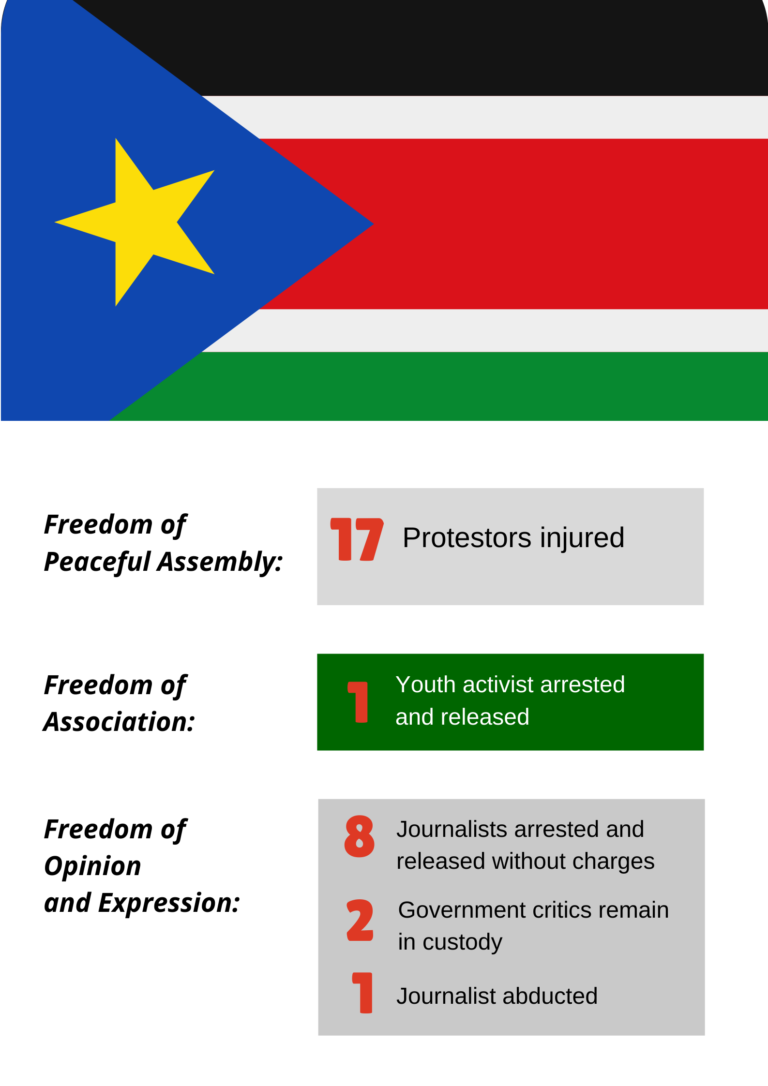
South Sudan
In South Sudan, concerns have been raised over the ongoing conflict and the possibility of resumption of the armed conflict at national level. Gross human rights violations and abuses of international humanitarian law continue including rape, sexual and gender-based violence (SGBV), and increased attacks on humanitarian workers and convoys.An increase in violence in Upper Nile State and other parts of the country threatens the 2018 peace agreement (R-ARCSS). On 22 March 2022, the main opposition force, Sudan People’s Liberation Movement/Army in Opposition (SPLM/A-IO), suspended its participation in the security mechanisms tasked with overseeing the implementation of the R-ARCSS.
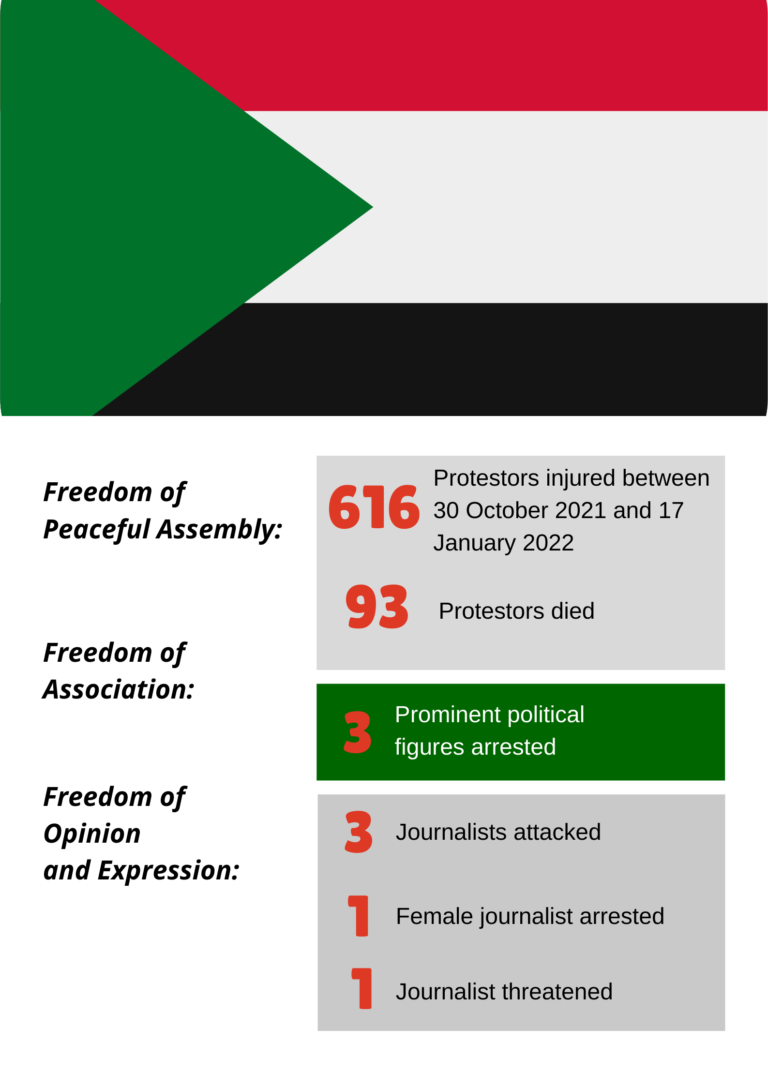
Sudan
Sudan’s humanitarian, security, and economic situation has been deteriorating since the coup on 25 October 2021. Security forces continue to violently suppress protests and target protestors. The country has been immersed in a political and social crisis since the beginning of January 2022, following the resignation of Abdallah Hamdok as Prime Minister of the transitional period. The country remains without a functioning government. Several protestors are held without charges and are refused access to their lawyers and families.Moreover, the value of Sudan’s currency is depreciating. Consequently, the prices of bread, fuel, electricity, health care and public transport have all skyrocketed.
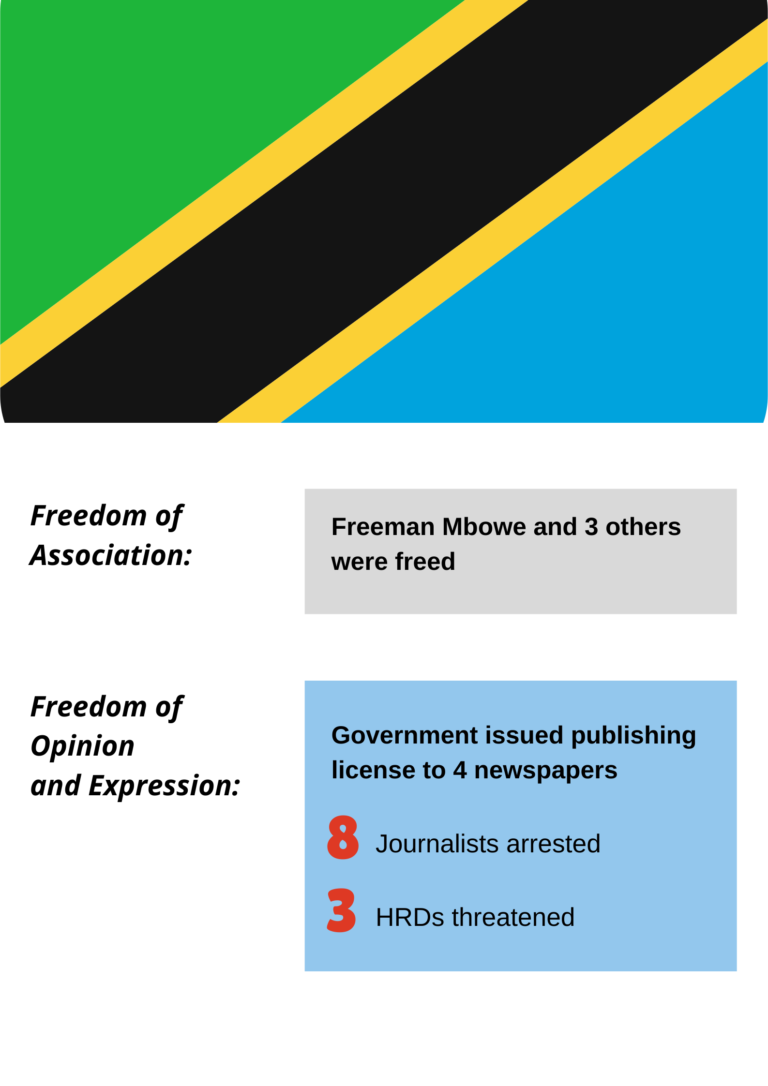
Tanzania
Since the swearing in of President Samia Suluhu Hassan, in March 2021, Tanzania has taken some positive measures to improve its civic space. The government issued new publishing licenses to four newspapers banned during the late President John Magufuli’s rule. Additionally, it announced its intention to amend the restrictive Media Services Act (2016). President Samia Suluhu met with Tundu Lissu, the exiled opposition figure residing in Belgium, where Lissu raised concern about his fate and that of other political opposition. Authorities also freed opposition leader Freeman Mbowe and his co-accused after the Director of Public Prosecutions submitted a motion to dismiss the terrorist accusations against them.
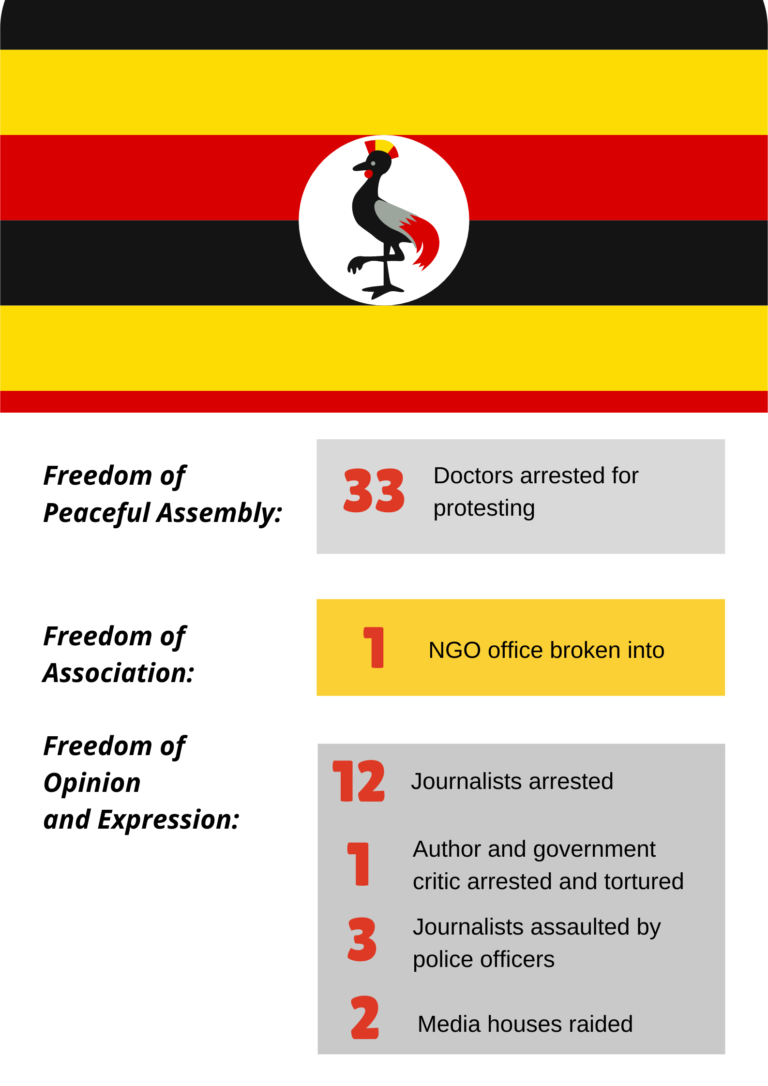
Uganda
The human rights situation in Uganda deteriorated in the reporting period. Restrictions on critics and opposition leaders have increased. Security forces arbitrarily detained, abducted, and tortured critics and political opponents. In December 2021, author Kakwenza Rukirabashaija was kidnapped and tortured whilst held incommunicado. The rights to freedoms of opinion and expression, peaceful assembly, and association are increasingly under pressure. The authorities targeted and arrested several journalists and raided two media houses.
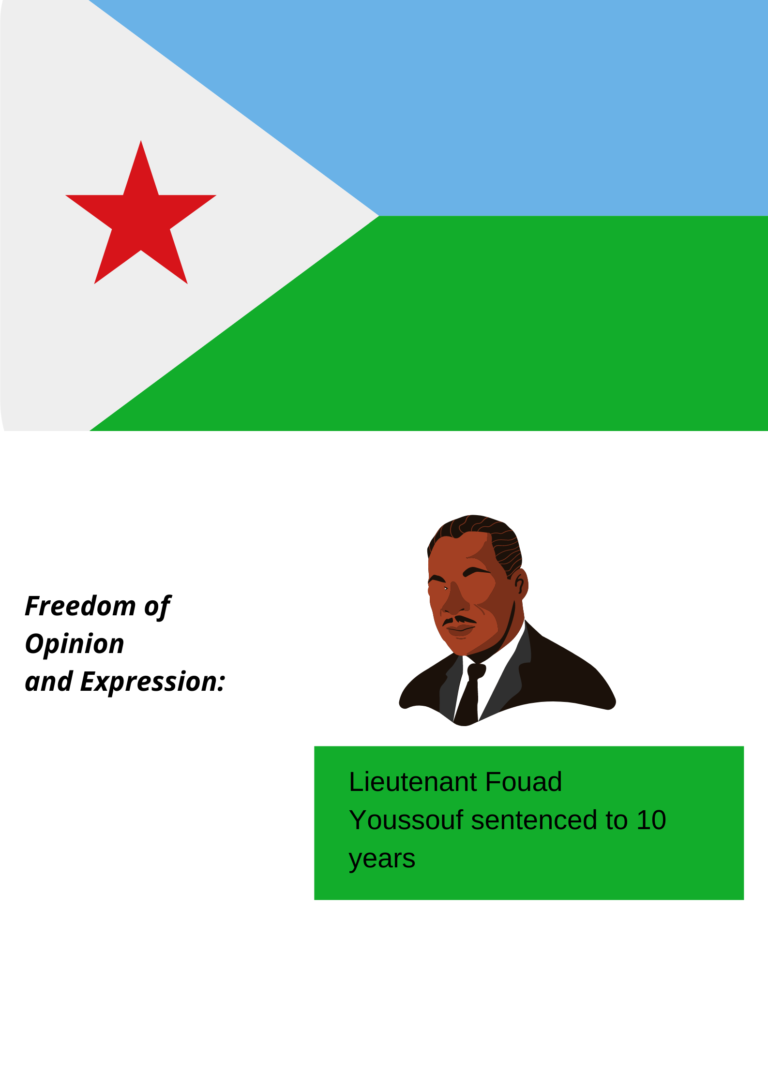
Djibouti and Eritrea
Djibouti and Eritrea remain the most repressive governments in the sub-region. The rights to free expression, association, and peaceful assembly continue to be severely restricted, making it virtually impossible for independent human rights organisations or individual HRDs to operate in the country.

